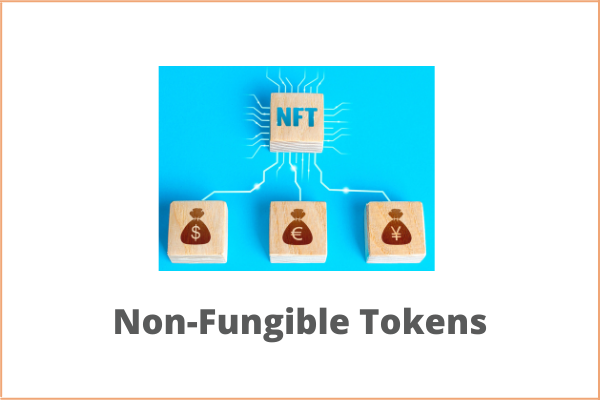In this post, I described the different kinds of tokens and their functions.
Cryptocurrency was introduced into the financial system with the launch of bitcoin in 2009.
Following its success, other cryptocurrencies (called altcoins i.e. alternative coins to bitcoin) were created to overcome the problems of the pioneer crypto.
These cryptocurrencies (bitcoin included) are popularly referred to as coins or tokens.
But they have different functions. And that is what you’ll learn in this post.
Are you ready? Let’s jump right in!
Post Summary
Click on any item above to read its details immediately.
Happy reading!
What Are Tokens?
Before we proceed to their kinds and functions, let’s learn what tokens are.
They are blockchain assets that are used for investment, storing value, or making purchases.
They facilitate transactions involving the creation/execution of decentralized apps and smart contracts.
Originally, coins were differentiated from tokens as native cryptocurrencies of a blockchain while tokens are the other cryptos hosted on the blockchain.
Nowadays, it is okay to use both terms interchangeably. 🙂
That said, let’s go into the main business of the day.
Tag along!
Kinds Of Tokens And Their Functions
See the different kinds of tokens at a glance 👇

Let’s take them one after the other:
1. Security Tokens (ST)

A security token is a token that guarantees holders a reward.
In other words, it gives you the right of ownership or ‘security’ hence the name – security token.
Holders of ST are promised a share of profits, dividends, or interest.
Usually, a security token is regulated. And they must pass the Howey Test by SEC.
This Howey Test certifies a token as a security if it meets the following criteria:
- It involves an investment of money.
- The investment will yield profit.
- The money investment is a common enterprise.
- The profit comes from the promoter’s efforts.
Some examples are 10SET, BCAP, Sia Funds, and LOLTOKEN.
Most times, traditional assets (like stocks and shares) are converted to digital assets.
These are also security tokens.
Examples are
- mTSLA (Tesla)
- mSLV (Silver Trust)
- mNFLX (Netflix)
- mAAPL (Apple)
2. Utility Tokens (UT)

A utility token is a coin that is used to access the services of a blockchain or protocol.
UT facilitates the creation of decentralized projects or applications.
That way, they provide economic benefits while enjoying the security of the blockchain.
Unlike ST that guarantees a profit, the value of UT depends on the laws of demand and supply.
Their value appreciates when demand is high, supply is low, and vice versa.
Common examples are ETH, GAS, DOT, EOS, ALGO, ADA, etc.
3. Non-fungible Tokens (NFTs)

Third on my list of different kinds of tokens are NFTs.
They are special coins that represent unique assets.
NFTs have distinctive characteristics.
Therefore, you cannot duplicate or replace them
Moreover, they are not interchangeable. You can neither exchange them for each other nor divide them into fractional units.
NFTs represent digital or tangible assets like collectibles, digital art, game items, domain names, event tickets, etc.
Top platforms that issue NFTs are CryptoKitties, CryptoPunks, Crypto.com NFT, RareBits, Decentraland, OpenSea, etc.
You can learn more about NFTs here.
4. Governance Tokens

Here’s another kind of token that you should know about.
You can guess their function from the name – Governance (LOL).
Governance Tokens are used to fuel blockchain-based voting systems.
Holders can vote for proposed changes or propose changes to the network.
The popular ones and their blockchains include:

Note: we’ve reviewed these coins in the past. You’ll find their reviews here.
5. Payment/Transactional Tokens

Just like the name sounds, these coins are used for digital payments.
You can use them to pay for goods and services online.
Payment tokens are created for exchange and to store value.
Think of them as an alternative to traditional fiat currencies.
Examples are BTC, LTC, DASH, BCH, XMR, etc.
6. Wrapped Tokens

Last but not least, we have wrapped tokens.
These are coins that have been transformed (wrapped) to become useful in a blockchain that is not their native blockchain, without losing their value.
The essence is to enable interaction between different blockchains despite their uniqueness.
For example, Bitcoin cannot be used for transactions on the Ethereum blockchain.
But when it is converted into a wrapped Bitcoin (WBTC), which is an ERC-20 token, it can then be used on the Ethereum blockchain.
Amazing, huh?
Other examples are WETH, WCK, RENZEC, WMATIC, MADAI, etc.
You can learn more about these coins here.
Did you observe?
Some of the coins mentioned above perform dual functions.
A good example is DOT, which serves as both a governance token and utility token for the Polkadot blockchain.
Nevertheless, they’re listed under their primary functions in the list above.
Before we go, let’s talk about another interesting token that didn’t make my list 👇
Stablecoins

Stablecoins are coins that are pegged to an asset with a stable value, such as gold or fiat currency.
In other words, they have a fixed value to the underlying asset.
Tether (USDT) is a typical example. It is pegged to US dollars.
Thus 1 USDT is equal to $1.
The interesting thing about stablecoins is that their values remain stable despite the crazy volatility of other cryptocurrencies.
Cool, right?
Other examples are USDC, TUSD, BUSD, PAX, PAXG, VAI, FRAX, etc.
Conclusion
This is where we’ll draw the drapes in our discussion on the different kinds of tokens. I hope you enjoyed the read.
Now, I’d love to hear from you; which of the token kinds above do you use often?
Are there other token types that you feel should have made my list?
Let me hear your thoughts in the comments section right now.
Also, share this post with other crypto fans on your list, thank you.




0 Comments